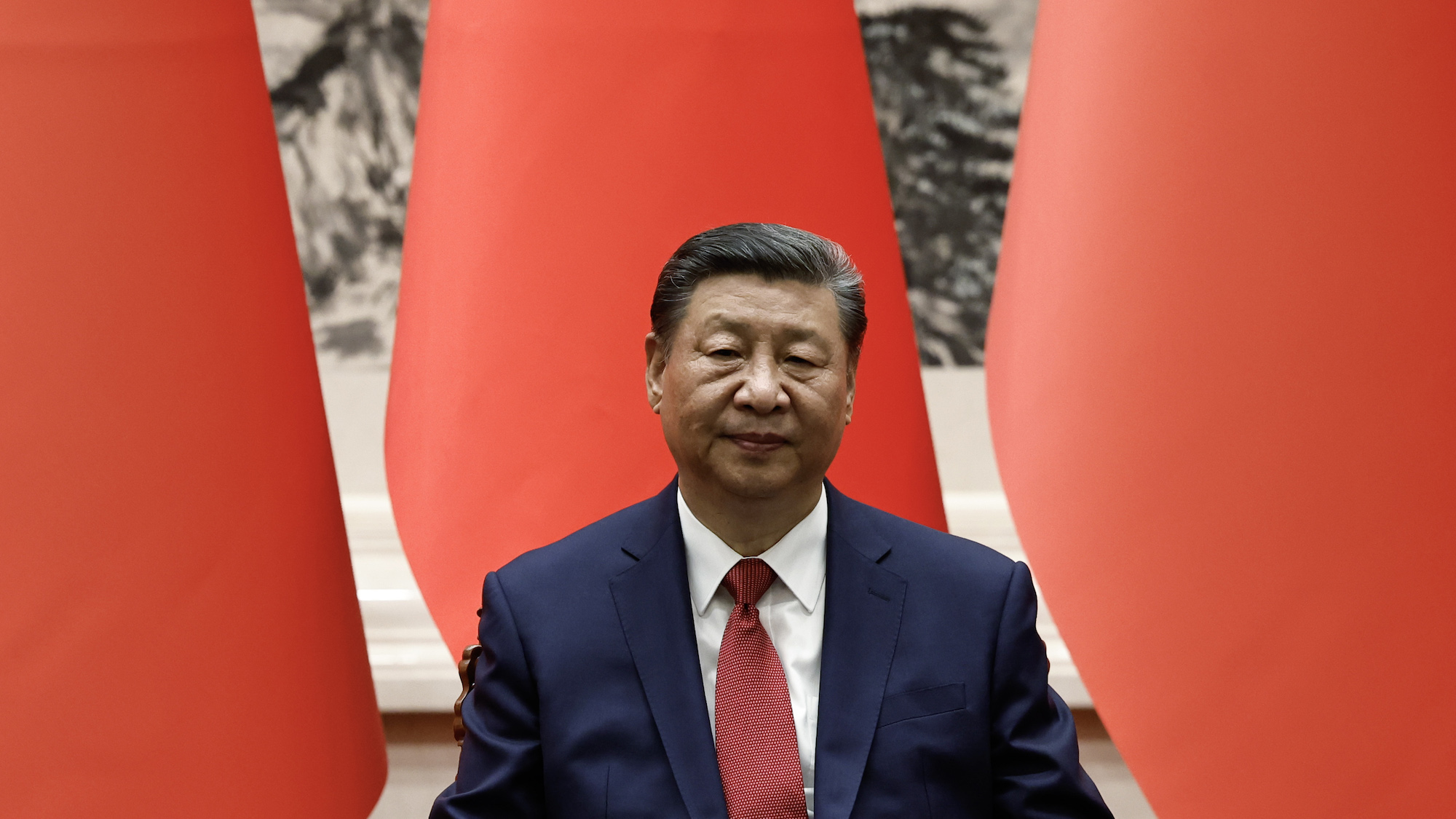Why is China stockpiling resources?
The superpower has been amassing huge reserves of commodities at great cost despite its economic downturn

A free daily email with the biggest news stories of the day – and the best features from TheWeek.com
You are now subscribed
Your newsletter sign-up was successful
China is rapidly stockpiling crucial materials in a manner that is beginning to draw "global attention".
Among the materials are stocks of fuel, including crude oil and natural gas, valuable manufacturing metals like copper, iron ore and cobalt, and in particular precious metals like gold, said Newsweek. All this is taking place at a "time when commodities are expensive" and, considering the economic issues it faces, "does not reflect growing consumption", said The Economist.
It begs the question of why China is now frantically stockpiling such an array of commodities, and whether it is a "defensive measure" or one hinting at future aggression.
The Week
Escape your echo chamber. Get the facts behind the news, plus analysis from multiple perspectives.

Sign up for The Week's Free Newsletters
From our morning news briefing to a weekly Good News Newsletter, get the best of The Week delivered directly to your inbox.
From our morning news briefing to a weekly Good News Newsletter, get the best of The Week delivered directly to your inbox.
What is China doing exactly?
China has been displaying an "alleged pattern of behaviour" that has "blared red" for the US as it amasses "key resources", said Channel News Asia (CNA). This includes asking its state oil companies to add "nearly 60 million barrels" of crude oil to its reserves and the state-owned agricultural stockpiler Sinograin to increase its grain imports.
Exactly how much is being stored is difficult to ascertain. The Chinese state "tightly guards information" on its emergency stockpiling making it hard to "gauge or track its inventory levels", said Reuters.
Why is it stockpiling?
The most alarming reason why countries tend to build up reserves of valuable. materials is the prospect of war. Conflict means that imports and access to materials become restricted.
The current stockpiling measures in China have "led some analysts to speculate" that President Xi Jinping is planning an invasion of Taiwan, which it claims as its territory, said Newsweek.
A free daily email with the biggest news stories of the day – and the best features from TheWeek.com
There is some talk among US officials that the Chinese president wants his "forces to be prepared to invade the island by 2027". However, there is division "on the reality of this threat". But China is still "stockpiling resources well beyond limits" and what is "considered normal during peacetime", said The Diplomat.
Another explanation is that China is preparing for a further economic downturn, and so is particularly keen to "wean itself off Western supplies". It could be about to face even "tougher export restrictions", particularly if Donald Trump reclaims the White House, said The Wall Street Journal (WSJ).
China has been a prosperous country in recent decades, but has been outwardly keen to "shift away from resource-intensive industries" in the face of "economic struggles", said The Economist. However, the "opposite is happening" and China has been importing commodities at a record rate. Now, perhaps, it is gathering reserves ahead of "new geopolitical threats", including the potential return of a US president "who makes no secret of his desire to hobble China".
There are further alternative explanations. China could be trying to establish "leverage over competitors" or to gain "control of the market", said The Diplomat. There is also the chance it is operating through "paranoia", or "stoking international fears of war" with propaganda exercises.
What effect is it having?
China's actions are causing concern. Given its military expansion in recent years and the increasingly heightened tensions with Taiwan, stockpiling exactly what "it would need to survive a protracted conflict" is beginning to sound some alarm bells, said The Economist.
Economically, the stockpiling can be "a blessing and a curse" for some industries, said the WSJ. For now, some companies and markets are making extensive sales, but the "long-term risks are multiplying", and the stockpiling could eventually "dent sales growth".
There is also evidence that China is taking further measures to distance itself from the US. While buying huge quantities of gold earlier this year, China has also been "selling down its holdings of US government debt" to "protect it against dollar sanctions" if it comes into a conflict with the West, said The Telegraph.
This could be in reaction to sanctions placed on Russia after it invaded Ukraine, in which Western penalties quickly "wiped out $350bn of Moscow’s foreign currency".
Richard Windsor is a freelance writer for The Week Digital. He began his journalism career writing about politics and sport while studying at the University of Southampton. He then worked across various football publications before specialising in cycling for almost nine years, covering major races including the Tour de France and interviewing some of the sport’s top riders. He led Cycling Weekly’s digital platforms as editor for seven of those years, helping to transform the publication into the UK’s largest cycling website. He now works as a freelance writer, editor and consultant.